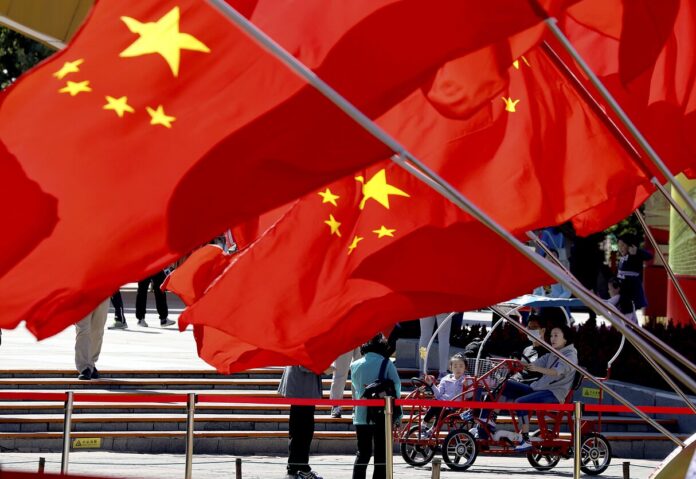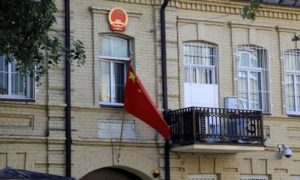
On August 10, Beijing announced it would be recalling its ambassador from Lithuania. This follows an earlier decision by Vilnius to host Taiwan’s de facto embassy. In a statement, China’s Foreign Ministry said the decision to host Taiwan’s representation “severely undermines China’s sovereignty and territorial integrity”. Beijing has also demanded that Lithuania recall its ambassador from China.
Recently, the Lithuanian parliament recognized China’s repressions against the Uighur ethnic minority as a “genocide” and has strengthened ties with Taiwan, with Vilnius officials saying there was a need to diversify trade with Asia. Lithuania has also left the so-called 17+1 economic format with Beijing, saying it was “divisive”. These moves were met with rebukes from China.
Beijing considers the decision to open Taiwan’s representation to be in breach the One China principle, which says that “the People’s Republic of China is the sole legal government representing the whole of China”, according to the spokesperson. “The red line of safeguarding national sovereignty and territorial integrity shall not be crossed,” the foreign ministry said in the statement, urging “the Lithuanian side to immediately rectify its wrong decision, take concrete measures to undo the damage, and not to move further down the wrong path”.

Lithuania’s Ministry of Foreign Affairs says it was informed about the decision to recall the Chinese ambassador to Lithuania earlier in the day. “While regretting this move of China, the Lithuanian Foreign Ministry takes this opportunity to reiterate that, in line with the One-China principle, Lithuania is determined to pursue mutually beneficial ties with Taiwan, like many other countries in the European Union and the rest of the world do,” the Lithuanian Foreign Ministry said.
Taiwan’s representation in Lithuania is expected to launch activities as early as this summer. Lithuania also plans to open a commercial representation in Taiwan. The Lithuanian Foreign Ministry also said earlier that Lithuania was interested in expanding its cooperation with Taiwan in various fields, laying particular emphasis on the development of economic relations and cultural exchanges.
Political scientist Konstantinas Andrijauskas of Vilnius University, says the decision to recall China’s ambassador is a culmination of two years of worsening relations. “It is an attempt to send a message not just to Lithuania, but to many other countries that are considering, reconsidering or thinking about their current and prospective relations with the island of Taiwan.” According to him, a turning point in the Lithuanian-Chinese relations occurred two years ago, when the Chinese Embassy allegedly organized a counter-protest against a Hong Kong support rally in Vilnius.
“The Chinese ambassador, who has now been recalled, seems to have largely organised the counter-protest. The relations have been on a decline these last two years and now we’ve reached the point where that has been officially acknowledged,” according to Andrijauskas.
China could punish Lithuania with economic sanctions, he admits, but the effects would be limited due to low intensity of economic ties between the countries. Lithuanian businesses with an eye to expanding in China could face obstacles, however. “These businesses could find it hard to carry out their plans – when China wants to punish, it first hits at economic ties,” according to Andrijauskas.
Lithuania has no interest in severing relations with China, said an advisor to President Gitanas Nausėda, adding that the president still expects Beijing to reconsider the decision to recall its ambassador.
Several weeks ago, Taiwan announced plans to open a representative office in Vilnius under the name of Taiwan – not Taipei as elsewhere in Europe – by the end of the summer. Lithuania is also planning to open a trade office in Taiwan. In response, China recalled its ambassador to Vilnius and demanded that Lithuania withdraw its envoy to Beijing. “We are in a situation where we want to maintain diplomatic relations with the People’s Republic of China, when we have certain economic, cultural and social interests, and it is not in our interest to end them,” said Asta Skaisgirytė, Nausėda’s chief foreign policy adviser. “The president has said on more than one occasion that he deeply regrets the decision to recall the ambassador and hopes that China will reconsider this decision and will not escalate this conflict so much,” she said.
She noted that Lithuania is not the only country to host Taiwan’s representative office in Vilnius.
“Lithuania’s case is not unique or exceptional. Taipei has dozens of representative offices in Europe and that nervous reaction is, of course, somewhat exaggerated,” Skaisgirytė said.
“Our dialogue with the Chinese has not stopped, and as long as there is dialogue, there is always hope,” she added.
News from LRT.lt





























